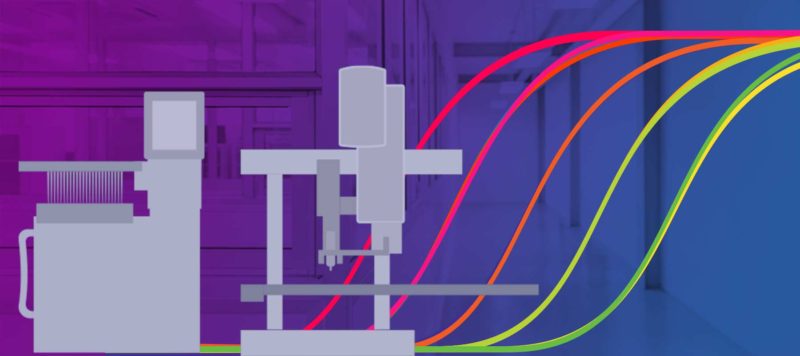PCR is a widely used technique, but it’s also very hands-on and time-consuming. Additionally, manual PCR does have some challenges that can affect the final result of the test. By automating the process with PCR robots, labs can increase throughput and reduce the hand-on time for your staff and improve accuracy and precision for more reliable results.
Your PCR process can benefit from semi-automated PCR robots or a fully automated real-time PCR system. Read on below to know more.
Challenges With PCR
While PCR is an indispensable technique in many life science labs, it has its limitations, affecting a lab’s productivity and accuracy.
Each step in a PCR application poses challenges that can be overcome with automated PCR robots help.
Here are some of them.
- Low throughput: Although a straightforward process, PCR can be very time-consuming especially considering the multiple steps, from sample preparation to testing with agarose gel. This causes a low throughput, which can affect other processes in the lab.
- Sample contamination: The preparation of the nucleic acid sample involves nucleic acid extraction from a sample. When done manually, there is a chance that the nucleic acid extracted is low in yield and purity.
- Sensitive to minute changes in volume: Sample and reagent volume is extremely important in all forms of PCR, including RT PCR, qPCR, and colony PCR. Even a minute change to the work can affect the PCR outcome, and this issue is more prone to happen in manual PCR.
Benefits of Using Automated PCR Robots
Whether you decide to employ semi-automated or fully automated PCR robots, your lab can benefit from improved efficiency, reduced cost, and achieve better results.
- High throughput: An automated system with microplate and liquid handling robots will give you a more hands-off PCR process while being faster than a human. With the PCR robot arm, you can connect your instruments to prepare more samples, dispense more reagents, and automatically run a higher throughput thermocycler.
- Increased sample purity: The purity of the nucleic acid in your sample is vital to minimize false positives and negatives. With an automated DNA extraction machine such as a magnetic bead extraction machine, you can ensure a high yield and purity in the sample.
- Reduce liquid waste: A liquid handling robot in your automated PCR setup can be programmed to pipette an exact amount of liquid in every step. By incorporating an automated reagent dispenser along with your pipettor, you can save even more time and reagents in the long term.
- Minimal biohazard risk: Sometimes, you may need to work on hazardous samples, and you can minimize that risk to your team by utilizing PCR robots to handle the samples. You can significantly reduce the biohazard risk by using an automated DNA extraction machine to prepare your samples in the initial steps.
- Better Traceability: Traceability is vital in a research lab to ensure all your samples and processes are well recorded. With lab automation software that is connected to your instruments and LIMS system, you can ensure that all operations are tracked and there’s a reliable data audit trail. Consider fully automated PCR workstations with an integrated barcode scanner to track every plate’s movement in the system easily.
By adopting a semi-automated or fully automated PCR robot system in the lab, you empower your lab to keep up with the growing demands of modern life science research. What’s more, you have the flexibility to select the degree of automation you want depending on your budget, space, and needs.
Contact Verulam Scientific Ltd to learn more about PCR robots and to find the right solution for your lab.
Verulam Scientific Ltd are the UK distributor and service provider for Hudson Robotics. Speak to a member of our technical team at [email protected] or call 01234 381000.
#VerulamScientific #Automation #Innovation #SamplePreparation #LiquidHandling #CustomisedSolutions #SyntheticBiology #HudsonRobotics #AutomatedLaboratoryEquipment #LifeScienceResearch #DrugDiscovery #ClinicalResearch #PharmaceuticalDevelopment #Screening #Proteomics #Genomics





